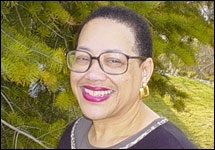 The recent joint announcement by two key federal regulators believed a negotiated agreement with 10 mortgage servicing firms would help more than 3.8 million consumers who were wrongfully foreclosed during 2009 and 2010. Brokered by the Federal Reserve and the Office of the Comptroller of the Currency (OCC), mortgage servicing firms agreed to jointly pay foreclosed consumers $3.3 billion, and allot another $5.2 billion for loan modifications and other services.
The recent joint announcement by two key federal regulators believed a negotiated agreement with 10 mortgage servicing firms would help more than 3.8 million consumers who were wrongfully foreclosed during 2009 and 2010. Brokered by the Federal Reserve and the Office of the Comptroller of the Currency (OCC), mortgage servicing firms agreed to jointly pay foreclosed consumers $3.3 billion, and allot another $5.2 billion for loan modifications and other services.
Yet as news of the settlement spread, a range of opinions emerged. From a prominent Capitol Hill legislator to consumer advocates, varying views spoke about the harm wrought by wrongful foreclosures and how far $3.3 billion split amount nearly 4 million consumers would really go.
Rep. Elijah Cummings (D-Md.), ranking member of the House Committee on Oversight and Government Reform, said: "I do not know what the rush was to make this settlement without answering key questions, and although I look forward to obtaining information about how this deal may assist homeowners, I have serious concerns that this settlement may allow banks to skirt what they owe and sweep past abuses under the rug without determining the full harm borrowers have suffered."
Speaking for the Center for Responsible Lending (CRL), Paul Leonard said, "We are deeply concerned that there be adequate safeguards in the settlement to ensure that borrowers and communities hit hardest by the foreclosure crisis will receive their fair share of both the cash payments and mortgage relief that will keep as many people as possible in their homes and out of foreclosure."
Debby Goldberg of the National Fair Housing Alliance was even more direct. "Communities of color were particularly hard hit by abusive mortgage practices. In order for the public to have any confidence in the fairness of this settlement, the OCC and the Federal Reserve must ensure that borrowers in these communities have equal access to the help it provides."
Even if public debate of this development continues, how much financial loss America's homeowners and communities have already suffered has been researched and revealed the facts of who has lost homes, wealth, and quality of life.
CRL's most recent research, "The State of Lending in America and is Impact on U.S. Households," (http://www.responsiblelending.org/state-of-lending/) updated earlier foreclosure research, finding that the nation has a still-troubled housing market. CRL also developed a new state-by-state analysis of foreclosures and lost wealth.
According to the report, since February 2012, 11 percent of African-American borrowers and 14 percent of Latino borrowers have already lost their homes to foreclosures. By comparison and during the same years, foreclosure rates for non-Hispanic Whites amounted to 6 percent and among Asian-American borrowers, 8 percent.
Even worse, African-American and Latino borrowers were respectively 2.8 and 2.3 times as likely to have received a mortgage loan with a prepayment penalty even though many of these borrowers could have qualified for more affordable and sustainable loans.
Across the country, more than half (52 percent) of the lost wealth resulting from living in close proximity to foreclosures was borne by minority census tract homeowners. In the District of Columbia and seven states –California, Florida, Illinois, Hawaii, Maryland, New Jersey and New York – an even greater share of lost wealth occurred in minority communities.
Additionally, African-Americans remain at a higher imminent risk of more foreclosures in Florida, New York, New Jersey, Ohio, and Illinois. For example, Black Floridians risk of imminent foreclosures is doubled that projected for the entire state.
As the nation prepares for the 2013 observance of the Dr. Martin Luther King, Jr. holiday, the martyred leader's historic call for economic justice has yet to be fulfilled.
Charlene Crowell is a communications manager with the Center for Responsible Lending. She can be reached at: Charlene.crowell@responsiblending.org.
- Home
- News
- Opinion
- Entertainment
- Classified
- About Us
 MLK Breakfast
MLK Breakfast- Community
- Foundation
- Obituaries
- Donate
04-19-2024 12:02 pm • PDX and SEA Weather






















































































































































































































































































































